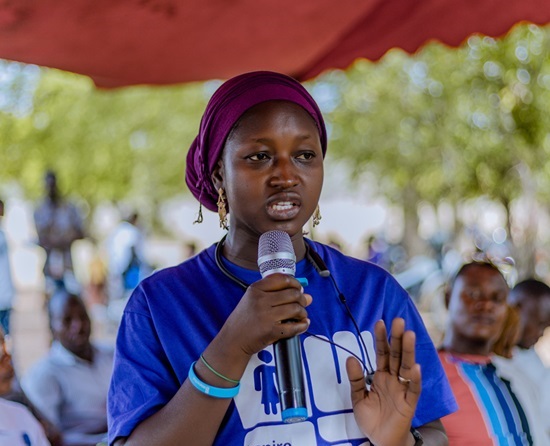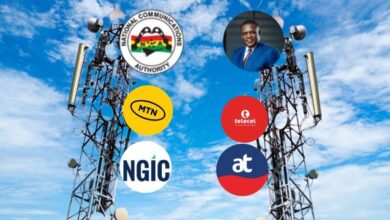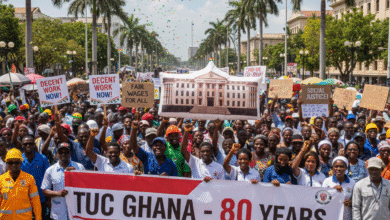Increasing access to WASH: An essential step for effective menstrual hygiene management

By Aliu Fauzia
Globally, the World Health Organization estimates that approximately 1.9 billion women are in the reproductive age representing 26% of the world population. Most of these women and girls menstruate each month for between two and seven days.
After 10 years of celebration Menstrual Hygiene Day, it is time to pause and reflect. There is gratitude for the public acknowledgement of menstruation as a natural phenomenon, exemplified by the Ghanaian government’s decision to remove taxes on the raw materials used for producing sanitary pads locally. International bodies are also fully active and committed to advocacy for menstrual health. However, myriad challenges still face girls and women in managing menstruation effectively.
According to the World bank poor menstrual hygiene, caused by a lack of education, persisting taboos and stigma, limited access to hygienic menstrual products, and poor sanitation infrastructure, undermines the educational opportunities, health, and overall social status of women and girls around the world. As a result, millions of women and girls are prevented from reaching their full potential. This situation not only affects their individual lives but also hampers broader societal development by perpetuating gender inequalities and restricting economic and social progress.
Menstruation is a natural process; however, if not properly managed, it can result in health problems. Poor menstrual hygiene significantly impacts the psycho-social wellbeing of women and girls, causing increased stress levels, fear and embarrassment, and social exclusion during menstruation.
In many parts of Ghana, adolescent girls and women face significant challenges in managing menstrual hygiene with dignity due to inadequate Water, Sanitation, and Hygiene (WASH) facilities and a lack of awareness among employers, institutions, and lawmakers. This is evident in the construction and maintenance of public and private spaces, including schools, healthcare facilities, and public places, which often do not cater to the specific needs of menstruating individuals.
Many schools lack adequate WASH facilities, making it difficult for girls to manage their periods hygienically, leading to absenteeism and dropout rates among school girls. UNICEF reports that about 90% of girls in Ghana in rural areas miss school during their menstrual periods due to various challenges, including the lack of sanitary products and insufficient clean and functional facilities for managing their periods.
Even healthcare settings sometimes fail to provide the necessary amenities for menstrual hygiene, which is critical for both patients and staff. Public places like markets, transportation hubs, and some homes lack private, clean, and functional bathrooms, which are essential for maintaining menstrual hygiene.
Stakeholders advocating for menstrual hygiene management must emphasize the crucial role Of Water, Sanitation, and Hygiene (WASH). To manage menstruation hygienically and with dignity, women and girls must have access to:
- A private place to change sanitary pads and reusable cloths
- Clean water and soap for washing their hands, bodies, and reusable cloths
- Facilities for safely disposing of used materials or a clean place to dry them if reusable
Recommendations
As we celebrate a decade of spotlighting menstrual hygiene, it is crucial to remind ourselves that we can contribute to improving menstrual hygiene management in small but significant ways. Fathers should make a conscious effort to buy pads monthly for their adolescents. Husbands should ensure they provide sanitary products for their wives especially stay home mothers who do not have other means of livelihood. By doing these little things, we can support women and girls in managing their periods more effectively.
The government must continue to support local manufacturers beyond removing taxes, address distribution costs.
More importantly, Government and other stakeholders must improve WASH facilities especially in hard-to-reach communities. This includes investment in gender responsive WASH facilities; ensuring accessible and functional WASH facilities in schools, healthcare settings, and public places are vital steps towards achieving menstrual equity and improving the lives of women and girls in Ghana.
We want a world where menstruation is a normal fact of life, a world where our leaders are committed, to work “Together for a #PeriodFriendlyWorld”. A world where there is no period poverty for everyone by 2030.
The writer is Advocacy, Campaigns, and Inclusion Manager at WaterAid Ghana




